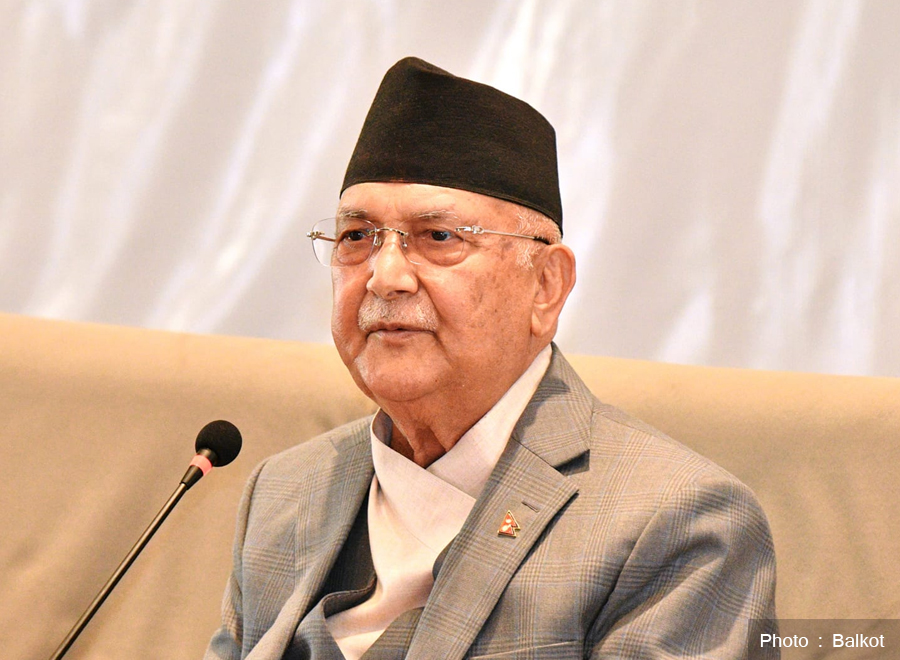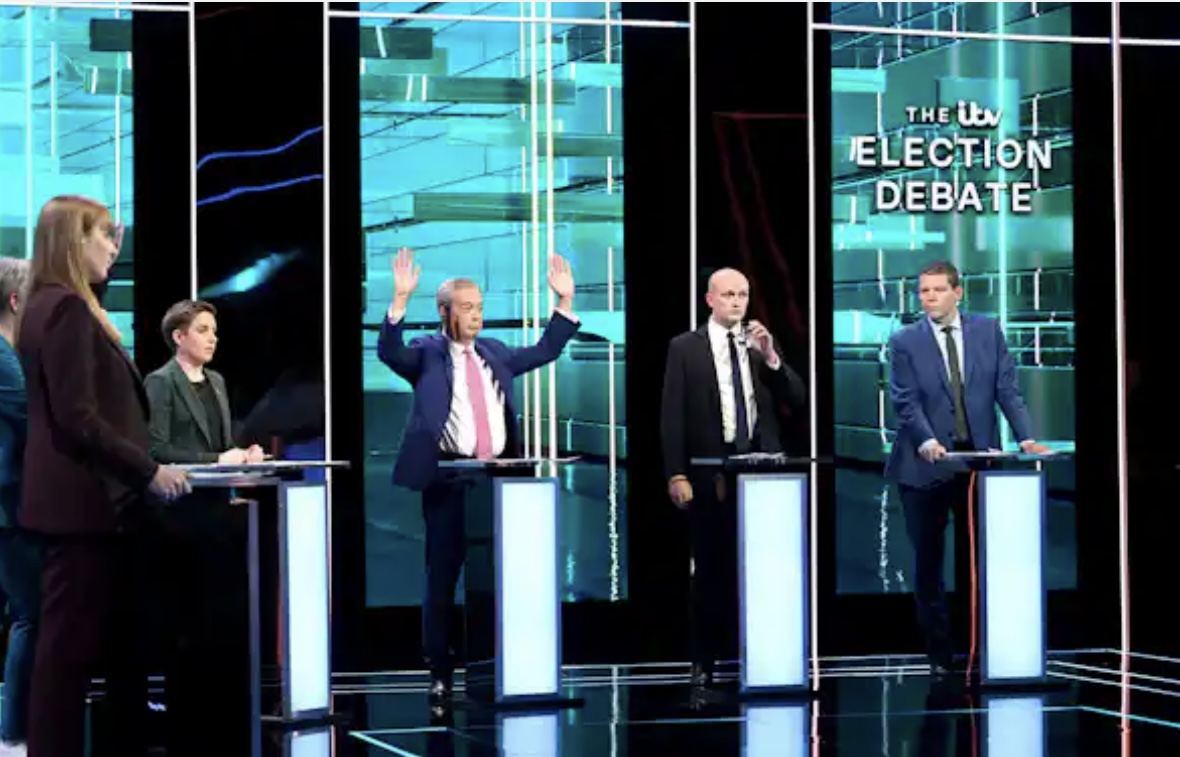Post-truth Era and Nepali Politics

By – Uttam Poudel, Assistant Professor, Nepal Sanskrit University, Balmeeki Campus, Nepal
“A lie can travel halfway around the world before the truth puts on its shoes” -Mark Twain
The above quotation by 20th century noted American writer and humorist, Mark Twain, is hinting at the point that a lie gets circulated in a rapid succession by virtue of its provocative and sensational nature. It also connotes that truth is sluggish in its circulation while a lie is slippery and hence, gets easily circulated due to its evocative and stimulating quality. This quotation is quite pertinent in this era of post-truth, where truth is overshadowed under the grip of falsehood in an easy way.
As an adjective, Oxford Dictionary defines post-truth as ‘relating to or denoting circumstances in which objective facts are less influential in shaping public opinion than appeals to emotion and personal belief’. This phrase got its impetus after Donald Trump was elected as the President of United States of America, and EU referendum in the United Kingdom in the year 2016, in which UK voters opted to disconnect the country from the membership of the European Union. Majority of people across the world responded these events as something unexpected ones caused by emotional response of the people at the cost of their rational one. The phrase “post-truth” was used earlier by different writers in different contexts but after the mentioned events, it has been used more in the contexts of politics, and now misleading politics against people is associated with “post-truth politics.” Oxford Dictionary declared “post-truth” as the word of the year in 2016 due the frequency of its use in diverse debates, discussions and deliberations.
Humans are now consumer beings. They aspire and strive to consume even ideas, information, news, views, and so onthrough different sources and cites. And the propagators of ideas and information are so tricky that they offer us embellished version of truth rather than the “stark” truth itself. This is the real situation we are really in at present. Communication technologies have penetrated into our life in such a way that they are not only killing our rationality but driving us to see the world through their eyes not through ours. The socio-political life of post-modern times has been highly affected by the post-truth world situation, where real truth is less instrumental and different versions of truth have significant effects in different socio-political occasions. Post-truth is also used synonymously as “customized lie” that is executed to influence the public opinion by striking their emotionality and belief systems rather than rationality and stark reality. In this sense, at present, people wishing to influence other should be smart enough to create a discourse, which could easily satisfy and manipulate people by letting them accept the things before them without any counter question as such.
Now, the question is being raised— has the rationality of humanity been suspended, and have emotion and personal belief systems been prevailing despite the fact that truth has so many evidences and valid things to project? What will happen to the entire world when post-truth starts ruling the age? The so-called social media platforms are supposed to be significantly responsible to establish post-truth world situation by publicizing the deluge of distorted images, fake news, propagandist ideologies, and other information. Social media platforms as communication techniques and technologies have an intense effect to shape public consciousness, more particularly during the elections.
The fervor of general election has now gripped Nepal in a full-fledged manner. Diverse social media networks have been exploited to manipulate the common people. The intense instrumentalization of social media technologies for propaganda and manipulation has posed the critical questions about the real truth. Instead of projecting their real policies, plans and proposals, the so-called candidates of almost all parties are involved in blame games through the display of distorted images, edited speeches, personalized things, etc. of rival parties simply with a view to appealing voters emotionally and altering their earlier decisions.
Different rhetorics, which have been already turned out to be afiasco, are being used by major political parties to brainwash the public. They are committed to change the voting behaviors of the masses through the rhetoric of nationalism, employment generation, maintaining qui-distance with Indian and China, taking back the Nepali territories occupied by India so far, and host of others. Some candidates have gone to the extent of assuring the voters to send them to foreign employments free of cost if they cast votes in favor of their parties. The most horrible scenario seen in Nepal, these days, is that even the so-called intellectuals holding high profile in different sectors are the supporters of the leaders of such political parties, the ideologies of which have already been outdated, and are even seen in rallying cries during different occasions of the parties. What can we expect from them for whom the truth is not exactly what it is but what they believe and have faith on?
The post-truth effects in Nepali politics has led it to be a pathological politics consequently there is a growing disenchantment of genuine ones towards politics. This effect has merely galvanized to frustration among the rational people in the country. The whole country has been the victim of disinformation, manipulation and propaganda of the major political parties for the last three decades, which are not even tired to claim that they are doing things for “loktantra” (democracy) even today. Are we, Nepali, really slavish to politicians? Are we not aware of the fact that they are absolutely coming up with their false promises and tall claims to manipulate us? Despite knowing the truth, we are under the influence of politicians and fall under the trap of their emotional blackmail. The emotional blackmail has prevented us from being skeptical about our leaders and hence, they are succeeded to brainwash us time and time again. American writer, Carl Sagan’s idea of the burden of skepticism for humanity in his famous essay “The Burden of Skepticism” is quite pertinent to discuss here. In this essay, he asserts that majority of humanity tend not to be skeptical because they cannot face the reality as such which is quite bitter in nature, so they satisfy themselves with the sweetness of falsehood.
However, we have to pay much for the momentary blissfulness of falsehood after some times. The ample example is that of Nepal, where people are still struggling to uplift their socio-economic status even after the restoration of democracy and the successful conclusion of different political movements. In fact, post-truth world may invite host of scary situations— political instability, social unrest, confrontation among the members of public, security threat to the particular country, interference of external forces to the country, failure of the nations to name the few. On the top of that, in the name of freedom of expression, it will also lead to anarchism which, in a long run, may be a great threat to democracy itself. Post-truth situation, therefore, needs a critical scrutiny by the concerned ones to save the democracy from its potential threats.
For the post-truth world situation, social media often becomes the subject of criticism. No doubt, media is greatly responsible for misinformation, distortion and manipulation but what about the action of regulatory mechanisms. In the context of Nepal, still there is no clear cut Social Media Law. The enforcement of law is imperative to counterblast the post-truth situation. It has been a customary to misinform, distort, sensationalize and customize the truth simply to influence the mass and change their behaviors. These acts need to be checked by operating ideal journalism, maintaining integrity of information, holding the theory of transparency, establishing powerful state-sponsored surveillance mechanisms to regulate different forces contributing to post-truth situation.


















Facebook Comments